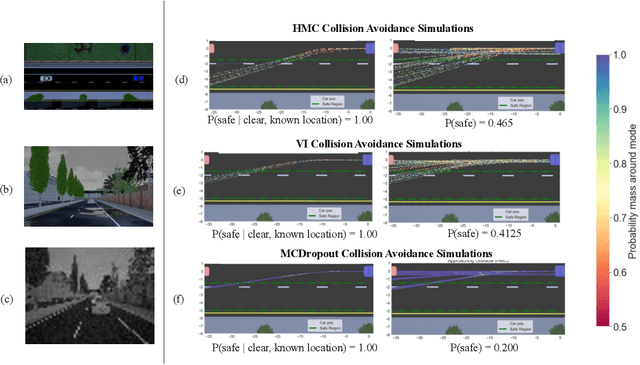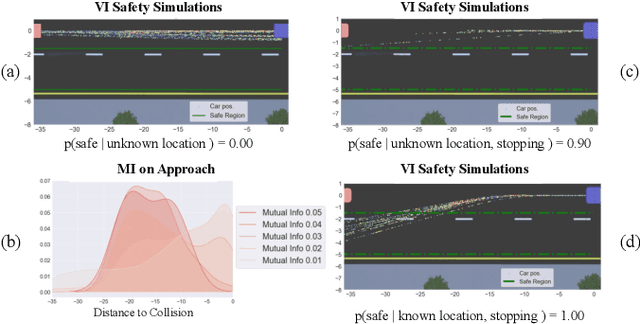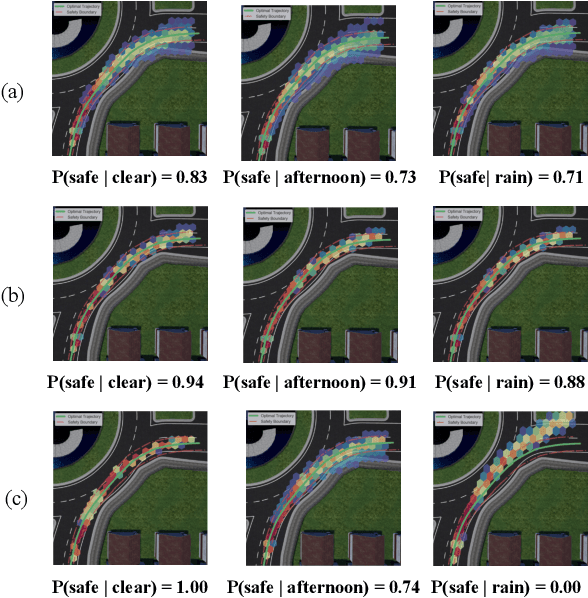Uncertainty Quantification with Statistical Guarantees in End-to-End Autonomous Driving Control
Paper and Code
Sep 21, 2019


Deep neural network controllers for autonomous driving have recently benefited from significant performance improvements, and have begun deployment in the real world. Prior to their widespread adoption, safety guarantees are needed on the controller behaviour that properly take account of the uncertainty within the model as well as sensor noise. Bayesian neural networks, which assume a prior over the weights, have been shown capable of producing such uncertainty measures, but properties surrounding their safety have not yet been quantified for use in autonomous driving scenarios. In this paper, we develop a framework based on a state-of-the-art simulator for evaluating end-to-end Bayesian controllers. In addition to computing pointwise uncertainty measures that can be computed in real time and with statistical guarantees, we also provide a method for estimating the probability that, given a scenario, the controller keeps the car safe within a finite horizon. We experimentally evaluate the quality of uncertainty computation by several Bayesian inference methods in different scenarios and show how the uncertainty measures can be combined and calibrated for use in collision avoidance. Our results suggest that uncertainty estimates can greatly aid decision making in autonomous driving.
 Add to Chrome
Add to Chrome Add to Firefox
Add to Firefox Add to Edge
Add to Edge